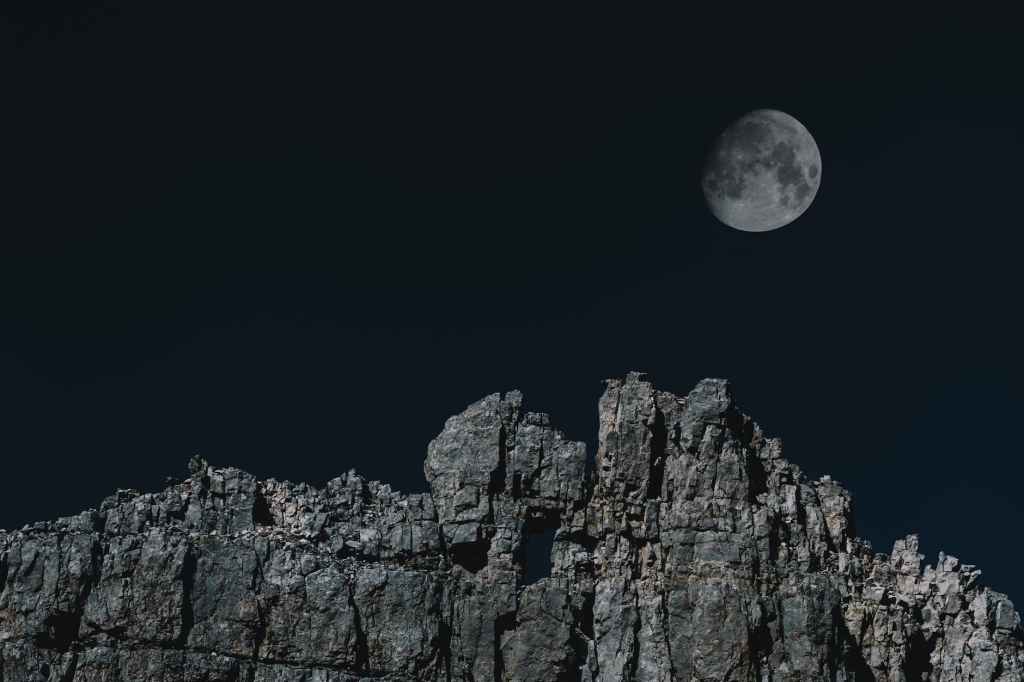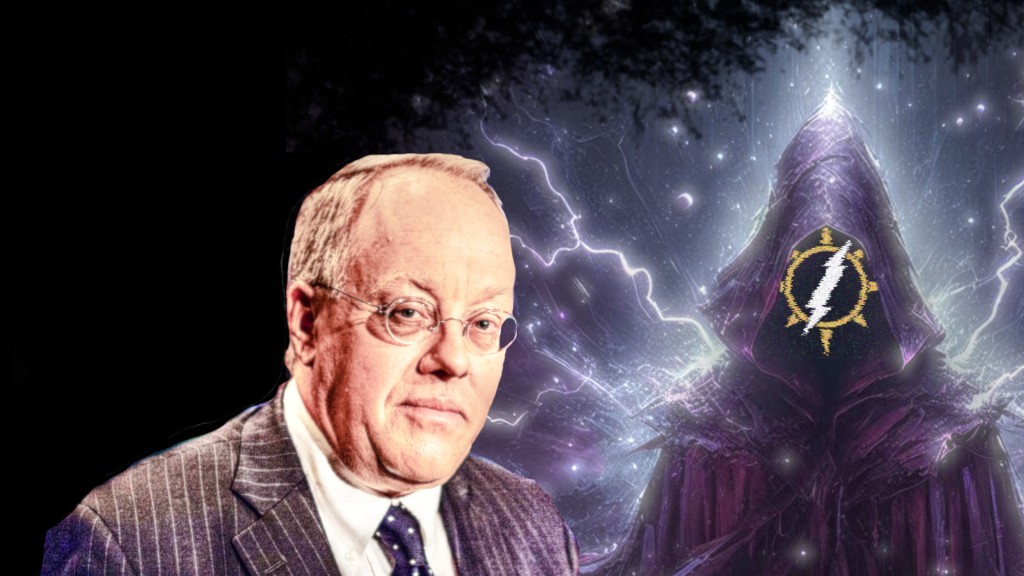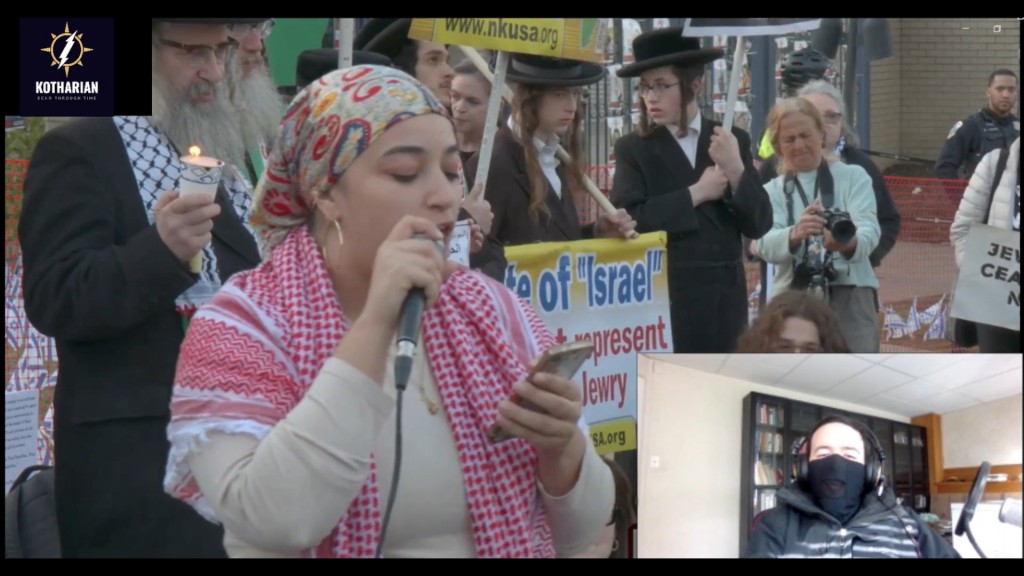From Seneca Folklore
In old time two young men living in a village were great friends, and on this account everybody disliked and shunned them. They could find no lodge in which to live, hence they said to each other: “Since everyone dislikes us the sooner we get out of this place the better.” So at last they went toward the south.
On the way, whenever night overtook them they looked around for some place where dry leaves had fallen, so that there they might rest comfortably. All they had to eat at first was evergreens and lichens. Having made bows and arrows, they killed small birds. The young men were at this time about 20 years old. After they got out of the thick woods they came to marshy ground, but they still kept on. Occasionally one would say to the other, “I am afraid we shall never get through this rough place,” but his companion would encourage him, and on they would go.
One day about noon they came to a large hemlock tree. “Climb up and look around,” said one, “See if there are any people in sight.” The limbs of the tree came almost to the ground, hence he climbed it easily. From the top he saw a beautiful trail leading from the tree through the air. He called to his companion, “Throw down your bow and arrows and come up to see what a splendid trail I have found.” The latter went up, and looking at the trail, said, “Let us try it and see where it leads.” They looked in every direction but saw no woods in any direction. It had been necessary that in whatever they undertook to do they should be of one mind. As they were now of one mind, they started off. The trail proceeding from the tree seemed as solid as if on the earth, and it extended as far away as they could see.
The young men traveled on without knowing that they were going up until they had reached another world, which seemed very pleasant. The leader said, however: “Do not stop. Let us go on and see where the trail will take us.” On the road there was plenty of game, but they gave no heed to it. After a while they came to a bark lodge out of which smoke was rising. One of the young men said, “It is customary for travelers to call at a lodge on the road and find who is living there; let us look in here.” The elder went in first. The lodge was of bark with a piece of bark suspended for a door. Pulling this aside, they saw an old man sitting within, who saluted them with: “I know the trouble you have had to undergo and how people disliked you; it is I who have called you. You shall stay there, you often spoke of the higher world, and I influenced you to follow the trail that leads up here. Now, come into my lodge and make a short stay, for I have promised to go elsewhere. As soon as you are gone, I shall go.”
The young men went into the lodge. The speaker, who seemed about middle-aged, continued: “You people down there often speak of an Elder Brother in the sky. I am he who makes light for you. I am Kaahkwa, the Sun. Hawenniyo commands me, saying that I must give you light. This is my resting place, but I can stay here only a short time. Whenever you come this way, you must stop. I am always here at midday.” Thereupon he started toward the west, saying, “I go under the earth and come out in the east, and when you reach the next lodge you must stop.”
They parted, and the two men soon came to the second lodge. One said to the other, “We must call at this lodge, as the Sun told us to do.” The lodge looked exactly like the other. Entering, the young men saw an old woman, to whom they said, “How do you do, grandmother?” “I am thankful that you have come,” said she; “it was your brother who sent you here. It is now time for you to eat. You have been long without food.” In one part of the room they saw a bark bowl containing boiled squash, which was evidently just out of the pot. They sat down, and the old woman gave each of them half a squash and a quarter of a loaf of corn bread, saying, “This will be enough for both.” “No,”answered one of the young men; “there is not more here than I can eat.” The old woman replied: “It is enough; when you return, stop and I will give you more. It is I whom people down below call the Moon.” When they entered her lodge, she was sewing skins. She continued: “It is the order of Hawenniyo that I make light for people on the earth, so that they can see at night. It is only at certain times that you see me completely. I tell you now that you must be on your guard, for the path before you is full of danger and difficulties. You must be brave and must never look at anything not in your path, for your enemy is outside of it: never heed anything you see or hear, for if you do, you are lost. You will soon pass this dangerous path, but remember my advice.”
As the young men traveled on they saw all kinds of fruit and game. The first would call out, “Stop! Come and eat; this is very good.” But keeping in mind the old woman’s words, they paid no heed. Each fruit had a phrase of its own, with which is begged the young men to come and eat it. After they had passed this place, they said, “Perhaps we are out of trouble now; we shall soon come to the lodge where the old woman told us to stop.”
After passing the first place they came to another. The first fruit was full of witchcraft or enchantment; if they had eaten of it, they would have become bewitched. At the second place, however, after eating plums and huckleberries they felt refreshed. The old woman had told them that animals were numerous among their path, but they passed these without harm.
After a while they saw another lodge in the distance, whereupon one of the young men said: “We are now in the place where we shall meet the greatest difficulty. We have no idea of our own except to follow the advice given; since we have set out to come and are here, we must endure what we meet.” They talked in this way until they came to the lodge. Finding a man who called himself their uncle, they saluted him. He said: “I am glad that your brother has sent you. You are going to a large assembly, but you can not join it unless I transform you.” One of the young men responded: “How so? We are men. Why should we be transformed? We have come here in our proper forms. Why should we change?” “You have come here as you are, but it is my duty to prepare you to enter the assembly of this upper world,” replied the man.
The other young man looking steadfastly at his uncle, was not frightened nor discouraged. The old man, going to another part of the lodge, brought a long strip of bark, which he laid out lengthwise, saying, “The first that came shall be transformed first.” Thereupon he called him to come and lie on the bark. When the latter had done so, the man asked, “Are you ready?” “Yes,” was the young man’s reply. At that moment the uncle blew through his hand on the young man’s head, separating the bones and flesh, which fell in two heaps. The other nephew, who stood looking on, saw that the uncle separated the parts of every bone, and after wiping them, put them aside, cleaned; and he thought, “My luck is hard. I am alone here; my friend is gone. That must have been very painful.” After every bone had been wiped and put in place, the old man said to the one yet unchanged, “Now, be ready.” Then he blew through his hands on the head of the skeleton with force sufficient to send the skeleton a long distance. Thereupon the skeleton again became a man, ready for the assembly. This was the way in which each man had to be purified.
The second nephew, not wishing to be treated in that manner, did not go forward willingly. But when the uncle was ready he gave the word, when it seemed that the nephew could not hold back. Lying on the bark, he was treated as his friend had been, while the latter in turn looked on. Because he was not so willing to submit, the body of the second youth was more difficult to clean. The old man washed and wiped each bone. The flesh remained in a heap by itself. The uncle took more uncleanness from this nephew than from the first. After he had finished the cleaning, he put the bones in place again, and saying, “Take care,” blew on the skull with such force that the skeleton was shot off a long distance, becoming a beautiful young man. The uncle said: “Sit down. You are now transformed. Now let us go outdoors and I will try you.”
Going outside the lodge, the three stood in the clearing. At that time a deer was feeding on the grass, and the uncle told one of the young men to catch it, while to the deer he called out, “Be on your guard; my nephew is going to kill you.” The deer sprang off, but had made only a few bounds when the young man seized it. Seeing how he caught the deer, and knowing that if he could catch a deer he was fit for any race, the uncle said, “You are now ready to join the people of this world.” Then he told the second nephew to catch the deer, at the same time calling to the deer, “Look out! If you are caught, you will lose your life.” The deer sprang off, but the young man, soon overtaking it, brought the animal to the old man, who said: “You also are ready. You can now go to this great assembly and see what you can do.”
They started but had not gone far when they saw a man approaching. They saw him go down into a little hollow ahead and come up, walking very fast. As they met he said to them: “You have come, brothers, and the object of your mission shall be accomplished. Your Elder Brother wished you to come, so now you shall go with me to this great assembly. He who has charge of it is the same person who made this great assembly. He who has charge of it is the same person who made the lower world, from which you have come. As you can not well go alone, I have been sent to conduct you.” They went at what seemed to the young men incredible speed. Soon they could hear a noise as of a great many voices, which increased continually. The man said: “It is the sound of mirth from the assembly.” When they drew near there seemed to be a large settlement. The man said: “Your sister has her lodge off at one end of the settlement, and your brothers are there, too; but you can not go into their lodge. You have not died yet, so you must pass through the same change as they have done in order to enter their dwellings.”
As they went along they felt a great desire to go in but knew they would not be admitted. They inhaled the odor of every flower on their path. After a while their guide pointed to a Long Lodge, saying: “That is the lodge of Hawenniyo, who made the world below and who allowed you to come here. We will sit on the threshold, and afterward we will go in.” The Long Lodge, which was built with very low walls, was hung inside with boughs, which gave out a delightful odor. As the air moved a perfume came from the flowers and herbs within. On entering they saw a great many people who had come to praise Hawenniyo and to have part in the Green Corn dance. These people never noticed that the two beings of human flesh and form were present, because the young men had been purified. A man came out of the assembly and proclaimed from a high place what things were to be done. The guide said: “This is the one whom you call Hawenniyo.” The young men looked on with great wonder to see so many dancing together. During an interval in the dance the guide said: “You understand, probably, why you have been allowed to visit this place. It is here that those who are good in the other world come when they die. Now, I will go back with you. When you reach home you shall tell your people what you have seen since I first met you.” The guide then turned back, and the young men went on alone.
The youths traveled very swiftly, calling at each place at which they had stopped when coming, but only to return thanks, as they were now on the way home. On reaching the Sun’s lodge, the Sun said: “You are going home now. It is I who caused you to come hither. You have been traveling 10 days. What we call one day here is a year in the other world. Ten years ago you started from your home below.” When they got back to the lower world they were 30 years old. The 10 years seemed no longer than the interval between going in the morning and coming in the evening. The Sun took them as far as the hemlock tree from which the trail began, where they found their bows and arrows sticking in the ground, covered with moss. As the sun took them in his hand he wiped off the moss, and immediately they were new as if just made. He said that the people of the place where these travelers lived had moved away, adding: “I will direct you to them.” In those times a mile was as far as a man could see, and it was 12 “looks” from the hemlock tree to the site of the settlement. When they came to the end of 12 “looks” the Sun said, “This is where you started.” Here clearings and little hillocks where corn had grown were still to be seen where formerly grass was growing everywhere. The Sun said: “You will find your people 12 ‘looks’ farther on; when you come to the first lodge you must ask the old man whether he had heard years ago of two boys who were lost, and learn the number of years from that time until the settlement moved. If he gives you no information, go to the next lodge, where you will find an old woman; ask her the same questions. Now we must part.”
The Sun turned back and the boys went forward. After a time they came to a clearing, in which they saw a village. As the Sun had commanded, they entered the first lodge. They called the old man sitting there grandfather and talked with him about many things. At last one asked, “Do you remember that in times past two young men went down from your village and were lost?” The old man held his head down for a long time as if thinking; finally raising it, he said: “For what reason you ask me this question I do not know, but two young men did disappear. It was said that they were lost, but it was never known in that way.” “How long ago did this happen?” the young men asked. “At the time they were lost the settlement was forsaken; it is 10 years ago,” said the old man. The old chief told the young men that they must not stay any longer in that place because their grandchildren might suffer the same kind of loss. The old man continued, “There is a woman in the next lodge who can tell you more than I can.”
The young men went there. “How do you do, grandmother? We have come on a visit,” said one of them. Their first question was, “Why did the people leave the old village?” “Two young men did not die, but they disappeared,” replied the old woman; “the country was blamed for it; the people thought it must be inhabited by some evil thing, which took off their children.” The young men listened, thinking they could perform what had been given them to do. Then they said, “We are the two whom you lost them, and now we have returned.” “How far did you go, and where?” asked the old woman. “It is against our orders to tell you alone, but let an assembly be called, and we will tell there all that we have seen. Let the people know this, and that there will be dancing; then they will be sure to come. There was nothing but mirth where we went.” The old woman said: “It is the duty of the man who lives in that lodge yonder to notify the people of such gatherings. I will go and tell him.” “Very well,” replied the young men; “the account of our journey is very important for none of our people will ever see what we have seen and return to tell the tale.” Thereupon the woman told the old man that two men had entered their village with important news, and that a meeting of the people must be called. The old man started out, and on coming to a certain spot he called, Go’we! Go’we! And continued to call thus until he reached the end of the village.
Soon all the people assembled, whereupon the chief went to the two strangers. Entering the old woman’s lodge, he said, “Let the work be done.” As they came to the place of the gathering, the people looked upon the young men, who seemed to them a different kind of people. They did not recognize them. The chief said:
“These men are here with messages. Whence they have come no one knows, for we are here with messages. Whence they have come no one knows, for we are not aware of any people living in the world but ourselves” (this was true, for they did not know that other people existed, and therefore were surprised). The chef having sat down, one of the men rising, said, “Listen all.” (He was the one first transformed, had been first in all things, afterward, and so was now first to speak.) After thanking the people for assembling, he said: “I wish to ask you a question. Did you, while living in the old village, lose two young men?” Then he sat down. An old woman, rising, replied: “I will answer that question. Two young men, despised and shunned by all, disappeared and have not been seen since,” and she took her seat. Then the old man whom they had visited rose, but he could not say much. The young man last transformed, stranding up, said: “We are the two who disappeared. No one cared for us; we felt grieved and we departed. We have been to the other world, and also in the southern world, and we have now returned. A guide came with us to our starting place. It was through your wickedness that you left your old homes. You are like animals of the forest; when their young are old enough they are left to themselves. As soon as we were large enough, we were left alone and desolate. The birds build homes for their children but soon leave them; you will see that whenever the young bird meets the mother it will flutter its wings, but the mother passes it by. We, like the young bird, were happy to meet you, but you did not want to see us. At the time we went away we were young, but we are now men. What is your opinion of what has happened? Will it be customary hereafter to be received into the gens.) His companion, having listened to his speech, said: “Let this be the starting point. Whenever a poor family are rearing children and the parents die, never forsake them.”
The men then told all their adventures to the great assembly; that they had visited the Long Lodge and had seen Hawenniio; that they had been directed to describe to their friends in the lower world all that they had seen. Then they told the people that they must learn the dances which Hawennyo wishes his children to know, namely the Green Corn dances. One young man was to sing the songs he had heard in the upper world, while the other was to teach the people how to dance to the songs. The second one was to be transformed became Hadent’heni, the Speaker, and the first, Hanigongendat’ha, he who was to explain the meaning of everything touching Hawenniyo. The transformed said further, “Let it be that whatever was done in the upper world shall be done down here.” So they danced, and the people adopted the rules laid down for them at this time. Thus their religion was formed and the people grew prosperous.
After a time the two young men said, “Let us continue our journey.” Going on, they found many villages, and spoke to their people. This is why the people are religious today. These men were good, doing right in all things that the people might follow their example. At length they said: “We have finished our work for we have been over the entire land. We have spoken righteousness and justice to all the tribes.”
After returning to their birthplace they said: “Let us go southward – south of the hemlock tree. All the people north of it have been visited.” On the journey they said, “Out food must be game.” They built a fire after deciding to camp and to go out to hunt. Then they hunted in many place. On one of these expeditions the speaker saw among the trees a strange being dodging around somewhat like a man. As he approached, the stranger stopped, saying, “I am glad to see you, grandson; let us sit down. (the stranger was very youthful in looks, though he thus indicated himself as grandfather.) I have been sent to tell you that you and the other people are in great danger. This is all I am permitted to tell you; but come! – we will visit an old man, who will answer all questions.” The speaker, arising, followed the stranger, for he was curious to know whether there were really people so near. On coming to a cliff, the stranger said, “We live down there.” Looking closely, the man saw an almost invisible trail, which they followed to the bottom of the ravine, where they came to an opening in the rocks. When about to enter, the stranger said, “Leave your bows and arrows as you do when you go into other lodges.” They went through the first opening, then through a second. In the second room they found sitting an old man and woman, to whom the stranger said, “I have brought your grandson.” The old man answered: “We have met several times, but you have never been able to know it. I wish now to caution you, for you and your people are in great danger. The danger comes from your companion, who has gone far into the forest. The Ganiagwaihegowa (giant bear) is on his trail, and is coming to devour you. You are in my lodge now, so I may tell you to defend yourselves. Tomorrow at noon the enemy will be at your camp. He is filled with powerful orenda (magic power), and we shall have to suffer on your account. If you do not act as I tell you, we shall all die. We have tried many times to destroy this Ganiagwaihegowa, but he is so filled with magic power that we can not kill him. My advice is this: “Go home and make some basswood manikins; your friend has returned to camp and will help you. When the manikins are finished, put them at the door in front of your brush lodge, each holding a bow and arrows. When Ganiagwaihegowa approaches you will know the creature by his roar. Be ready with your bows and arrows; you must have trees felled in the path in front of the manikins. Ganiagwaihegowa’s life is assailable only in the soles of his feet. When he comes near, he will be raving with anger. As he raises his foot in crossing the log piles, you will see a white spot in the sole; there is his heart. Strike it, if you can, for there only will a shot take effect.”
Going back to camp, the man cut down a basswood tree, from which, with the aid of his friend, he made two manikins, obeying the old man in everything. They sat in their brush lodge until noon the next day. Then they heard Ganiagwaihegowa roaring far off in the ravine, whereupon they grew weak. Gadjiqsa (the magical white deer) had told them to keep on the leeward of Ganiagwaihegowa so that he might not sent them. They were frightened but said: “We can not run away; he can not escape, as the old chance we have for our lives is to kill the bear. If he overcomes us, he will scent the way to our village and kill everybody.” As the bear came in sight, he looked frightful. Whenever he came to a tree, he would jump at it, tearing it to pieces. The smaller trees fell merely at his touch. Every time Ganiagwaihegowa roared the men, losing their strength, were ready to drop to the ground. When, however, he passed their hiding place on his way toward the manikins, in a terrible rage, and raised his feet in crossing the logs, one of the men shot at the white spot, and as he was going over the second log, the other man shot him through the other foot. The pain made Haniagwaihegowa rage fearfully. He bit the manikins through the body; then, turning, he went through the lodge, tearing it to fragments, but a little farther on he fell dead. Coming out from their hiding place, the men cut off his hind legs. Gadjiqsa had said that if they failed to do this, Ganiagwaihegowa would come to life again. As they cut off the feet, they saw that the whole body was quivering. The ribs were not like those in other animals, but formed one solid bone. After skinning the bear, the men cut his hind quarters into pieces, which they burned to ashes together with all the bones, for the old man Gadkisqsa had said, “If even one particle of bone is left, Ganiagwaihegowa will come to life again.” He had said also, “The hide must be smoked thoroughly over a fire, otherwise it will retain life and become Ganiagwaihegowa himself again.” The youths did exactly as they had been told.
After this adventure the young men continued to hunt. While one of them was out he met a man, who said to him, “Come with me.” Going with him, he found that the stranger was one of the Gadjiqsa people. The old man who had told him how to kill the great bear had said: “You have saved all the people; after killing you the bear would have killed us and would have gone to your village and destroyed everybody. Hawenniyo has given us power to aid men; it is my wish that you and your people should prosper. If this bear had destroyed you, he would have destroyed all the people in the world. If I had not told you, we should all be dead now. It is for you to thank us, as well as for us to thank you.” He added: “But there is another enemy to conquer. When you leave your present camp you will go on until you come to a river. There you will camp again, but be on your guard as you travel.”
The young men soon set out again. When they reached the river they put up a little lodge. As one was building a fire the other went to look for game. The man making the fire could hear someone talking very loud, as though making a speech. Going in the direction of the sound, when he came near he saw the speaker in a valley below the hill. He looked cautiously, so as not to be seen by those below. There were many people. In the center on an elevated place stood the speaker, who said: “Tomorrow we start on the trail leading to the place from which the two men have come. At the journeys end we shall have a great feast.”
The man on the hill listening understood that these people were Stone Coats and that they were going to his village to eat all the inhabitants; he drew back, frightened at the great number of them. Scattering the brands of the fire, he put it out. When his friend, on coming back, asked why he had no fire he said: “Do not talk so loud. There are many people down under the hill; they are Stone Coats, who intend to destroy us. We must get out of their way.” Peeping over the hills, the hunter was so frightened that he said, “We must hurry home,” whereupon, making a start, they went as far as they could that night. Soon they heard the sound of the approach of the Stone Coats – the noise was like thunder. It was evident that they traveled faster than the two men, for when they camped that night the men were but a short distance ahead of them. The chief of the Stone Coats said, “Tomorrow we must be at the village.” One of the men said, “Run with all speed and tell the people what is coming.” The other, hastening to the village, said, “The Stone Coats are coming and you shall surely die, but do not die without a struggle.” Returning, he reached his comrade that day, so fast could he run. The comrade said, “I shall stay near the Stone Coats, stopping when they stop. They have but one more halting place, and at each place they hunt.”
That night the Stone Coats’ chief said, “No one must go far; if he does and is away, he will lose his share of the feast.” The two men were listening and heard what the chief said. They could devise no way of saving themselves or their people. The people in the settlement, bewildered with fright, ran from place to place, not knowing what to do. The Stone Coats were near the village, when the chief said, “Let us halt and rest a little.”
The two friends sat on the bank of the river, on the leeward side so that they could not be scented. All at once they saw a man with a smiling face. When he came up, he said: “I will help you; I will save your people. I will conquer the Stone Coats, for Hawenniyo has sent me to aid you. I will go alone and fight for your people.” Telling the people who were running for their lives not to be afraid if they heard a frightful noise, with a smiling face he went down the bank into the valley where the Stone Coat army had halted to rest. Soon a terrible noise was heard, as of a desperate battle, and the two men, who had been commanded not to move, but to sit and listen, could see steam rising above the hill from the sweat of the Stone Coats. Then the sounds cam only at intervals and were not so loud, and finally they ceased altogether. The watchers saw the stranger with the smiling face coming up the hill. He said: “I am thankful that I have destroyed them. The Stone Coats are all dead, and the people now alive will live in peace. I am appointed by Hawenniyo to open the way and paths to his people on earth. Wherever there is sorcery among your people, I am always sent against it. We are sure to kill all we pursue. If a witch crawls into a tree, we shoot the tree until it opens and the witchcraft comes out. It is I whom you always hear called Lightning or Hinon (Thunder).
He left them, whereupon the two men went to the place where the Stone Coat army had been. Only piles of stone remained. The stones found all over the earth are remains of this battle and the killing of the Stone Coats. Thus, it was through the two transformed young men that our forefathers were saved from death and enabled to live to a great age. They foretold what was to be as it is today, and at the present time we hold to the teaching of these men, who had their religion from the upper world.
Source:
Seneca fiction, legends, and myths, F.W. Hodge, 1918





